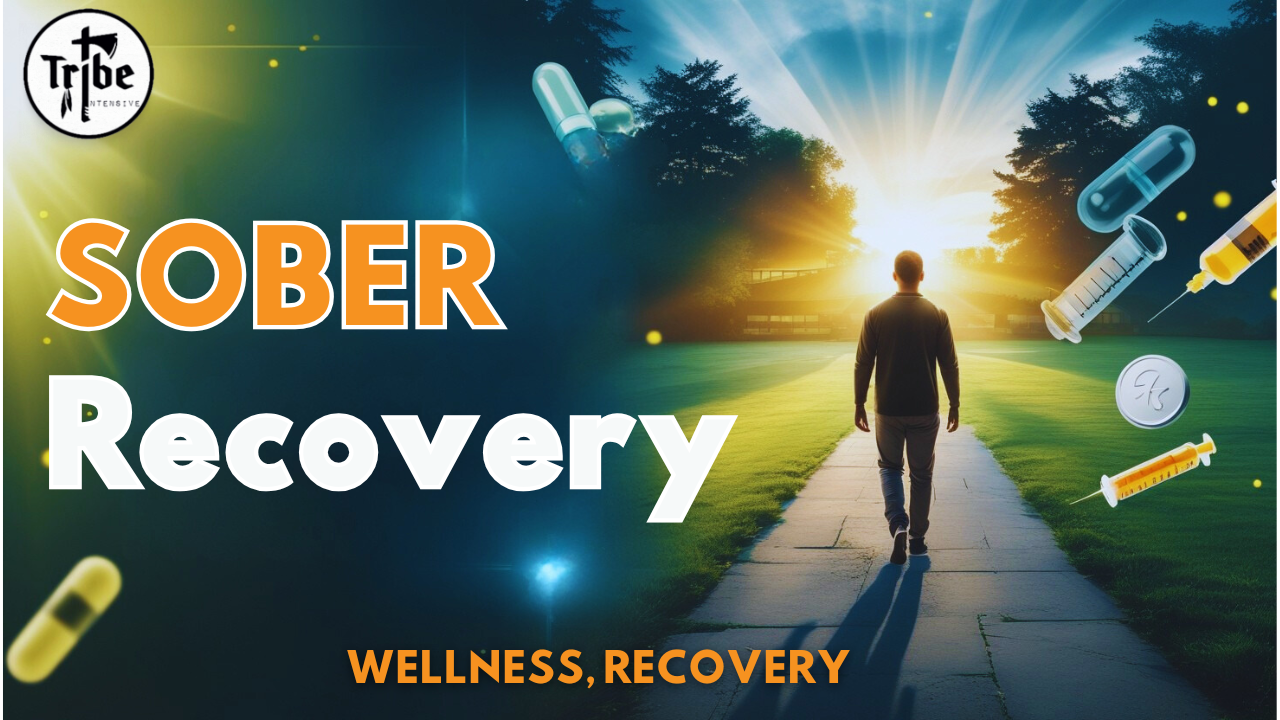Starting on the journey to sober recovery is a daring and transformative decision. It signifies a commitment to reclaiming one’s life from the grips of addiction and striving towards a healthier, more fulfilling future. This guide delves into the multifaceted approach to sober recovery, highlighting the importance of community, structured programs, and personalized care.
Understanding Sober Recovery
Sober recovery is the process of overcoming substance abuse and maintaining long-term sobriety. It involves not only abstaining from addictive substances but also addressing the underlying psychological, emotional, and social factors that contribute to addiction. Successful recovery is a holistic endeavor, encompassing physical health, mental well-being, and the cultivation of a supportive environment.
The Role of Intensive Outpatient Programs (IOP) in Recovery
Intensive Outpatient Programs (IOP) play a pivotal role in the range of addiction treatment. They offer a structured yet flexible approach, allowing individuals to receive comprehensive care without the need for residential commitment. This balance enables participants to integrate recovery into their daily lives, fostering real-world application of coping strategies and relapse prevention techniques.
Key Components of IOP
- Structured Therapy Sessions: Participants engage in regular group and individual therapy sessions. These sessions utilize evidence-based modalities such as Cognitive Behavioral Therapy (CBT) and Motivational Interviewing to address maladaptive behaviors and thought patterns.
- Flexible Scheduling: IOPs are designed to accommodate various personal and professional responsibilities. Programs often offer daytime and evening sessions, ensuring accessibility for all individuals.
- Community Support: Building a network of peers who understand the challenges of addiction is crucial. Group therapy and support meetings provide a platform for sharing experiences, fostering a sense of belonging and mutual encouragement.
- Skill Development: IOPs emphasize the development of practical skills essential for maintaining sobriety. This includes stress management, effective communication, and strategies for avoiding triggers.
Partial Hospitalization Programs (PHP): A Step Towards Independence
Partial Hospitalization Programs (PHP) serve as a bridge between inpatient treatment and outpatient care. They offer intensive therapeutic services while allowing individuals to return home at the end of the day. This structure supports the transition from a controlled environment to independent living, ensuring that individuals are equipped with the necessary tools to manage their sobriety.
Benefits of PHP
- Comprehensive Care: PHPs provide a high level of care, including medical monitoring, which is essential for individuals with co-occurring mental health conditions.
- Real-World Application: By returning home daily, participants can immediately apply coping strategies in their personal environments, facilitating practical learning and adjustment.
- Gradual Transition: PHPs ease the shift from intensive inpatient care to autonomous living, reducing the risk of relapse during this critical period.
Outpatient Programs (OP): Sustaining Long-Term Recovery
Outpatient Programs (OP) offer continued support for individuals who have progressed through higher levels of care. These programs are less intensive, focusing on sustaining sobriety and preventing relapse through ongoing therapy and support.
Features of OP
- Continued Therapy: Regular sessions with therapists help address emerging challenges and reinforce coping mechanisms.
- Support Groups: Participation in group sessions fosters a sense of community and shared accountability.
- Flexibility: OPs allow individuals to maintain their daily routines, promoting the integration of recovery principles into everyday life.
The Importance of Aftercare in Sober Recovery
Aftercare is a critical component of the recovery process, providing ongoing support and resources following the completion of formal treatment programs. Effective aftercare plans are tailored to individual needs, ensuring sustained sober recovery and personal growth.
Elements of a Successful Aftercare Plan
- Relapse Prevention Strategies: Identifying triggers and developing actionable plans to manage them is essential for maintaining sobriety.
- Continued Counseling: Ongoing therapy sessions address new challenges and support emotional well-being.
- Support Network: Engaging with support groups and sober communities offers encouragement and accountability.
- Life Skills Development: Focusing on vocational training, education, and personal development fosters a sense of purpose and direction.
Embracing a Holistic Approach to Recovery
A holistic approach to sober recovery recognizes the interconnectedness of mind, body, and spirit. Incorporating various therapeutic modalities can enhance the recovery experience and support overall well-being.
Holistic Therapies in Recovery
- Experiential Therapy: Activities such as art, music, and adventure-based therapies allow individuals to express emotions and process experiences in non-traditional ways.
- Mindfulness and Meditation: These practices promote self-awareness and stress reduction, aiding in emotional regulation.
- Physical Wellness: Regular exercise and proper nutrition support physical health, which is integral to overall recovery.
- Spiritual Exploration: For many, connecting with a higher power or exploring personal spirituality provides comfort and guidance.
Building a Supportive Community
Community plays a vital role in sober recovery. Surrounding oneself with supportive individuals fosters a sense of belonging and provides a network to lean on during challenging times.
Ways to Build Support
- Participate in Support Groups: Regular attendance at meetings such as Alcoholics Anonymous (AA) or Narcotics Anonymous (NA) offers shared experiences and encouragement.
- Engage in Sober Activities: Involvement in community events and hobbies that do not involve substances helps build new, healthy relationships.
- Seek Mentorship: Connecting with a sponsor or mentor provides guidance and accountability.
The Role of Family in Recovery
Family involvement can significantly impact the recovery process. Educating family members about addiction and involving them in therapy sessions can mend relationships and create a supportive home environment.
Family Support Strategies
- Family Therapy: Facilitated sessions address dynamics and promote healthy communication.
- Educational Workshops: Learning about addiction helps family members understand the challenges their loved ones face.
- Establishing Boundaries: Clear boundaries support the individual’s recovery while maintaining family well-being.
Navigating Challenges in Sober Recovery
The path to sobriety is not without obstacles. Anticipating potential challenges and developing strategies to address them is crucial for sustained recovery.
Common Challenges
- Managing Triggers: Identifying and avoiding situations that may lead to relapse is essential.
- Coping with Cravings: Developing techniques to manage cravings can prevent relapse.
- Addressing Co-occurring Disorders: Many individuals with addiction also face mental health issues that require concurrent treatment.
Strategies for Overcoming Challenges
- Develop a Relapse Prevention Plan: Outline steps to take when faced with triggers or cravings.
- Utilize Support Systems: Reach out to peers, mentors, or therapists when challenges arise.
- Engage in Healthy Activities: Pursuing hobbies and interests can distract from cravings and provide joy.
The Journey of Personal Growth in Recovery
Sober recovery is an opportunity for profound personal growth. Embracing this journey with an open mind and a willingness to change can lead to a fulfilling and purposeful life.
Areas of Personal Development
- Self-Reflection: Regular introspection fosters self-awareness and growth.
- Goal Setting: Establishing and working towards personal goals provides direction and motivation.
- Building Resilience: Developing the ability to navigate adversity strengthens recovery efforts.
Starting on the path to sober recovery is a courageous and commendable endeavor. By engaging in structured programs such as IOP, PHP



